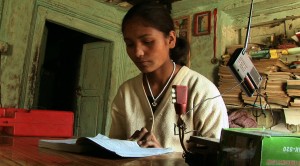My mother calls me an exhibitionist, but it's for this reason that I publish so much on the web -- when I'm long gone, I won't have anyone speaking for me, including suggesting that I wasn't always a protesting food justice advocate.
-
-
For Women’s History Month: Writing Our Way Back into History
In order to address the dearth of women's histories -- our stories, and voices being undocumented, under-valued, and falsely represented without reprimand -- women must begin telling their own stories. We must essentially write our way back into history.
-
3-10 Women Arrested for Being Lesbian in Cameroon: Gender Bias in Anti-Gay Prosecution
Recently, BBC news reported that three women -- allegedly involved in a love triangle -- in Cameroon have been arrested on suspicions of practicing homosexuality. According to the Washington Post, homosexuality is considered criminal in Cameroon and punishable by a jail sentence of six months to five years, plus a…
-
International Women’s Day Screening of Africa’s “Waiting for Superman” — “To Educate a Girl”
Framed by the United Nations global initiative to provide equal access to education for girls by 2015, the documentary film, To Educate a Girl, takes a ground-up and visually stunning view of that effort through the eyes of girls in Nepal and Uganda, two countries emerging from conflict and struggling…
-
London-Based Theater Troupe Debuts “ZHE”, A Play about Gender, Culture, and Sexuality in Africa
ZHE is a humorous, thought-provoking and haunting drama explores the lives of two British Africans living at the crossroads of culture, nationality, gender and sexuality. Journeying from childhood to adulthood and across continents, the play examines the joys and pains of coming to terms with the complexity of our many…
Online rulet oyunları gerçek zamanlı oynanır ve online slot casino bu deneyimi canlı yayınlarla destekler.
Bahis sektöründe adından sıkça söz ettiren Bettilt kaliteyi ön planda tutuyor.
Adres engellerini aşmak isteyenler için pinco casino bağlantısı çözüm oluyor.




